Hi Everyone,
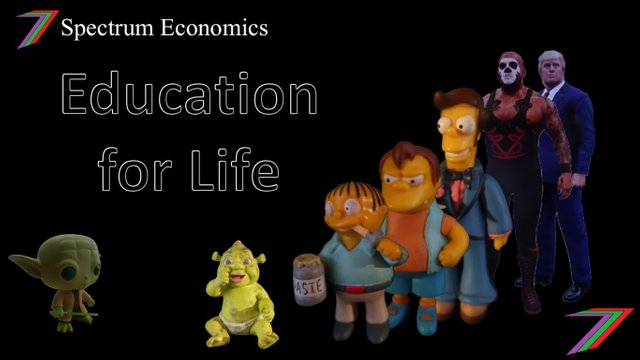
I consider acquiring an education to be one of the most fundamental journeys that everyone should experience throughout their life. I am not referring to just formal education but also to the education that we receive and expose ourselves to every day. Our education shapes the way we view the world and greatly influences the decisions we make.
So, what is education?
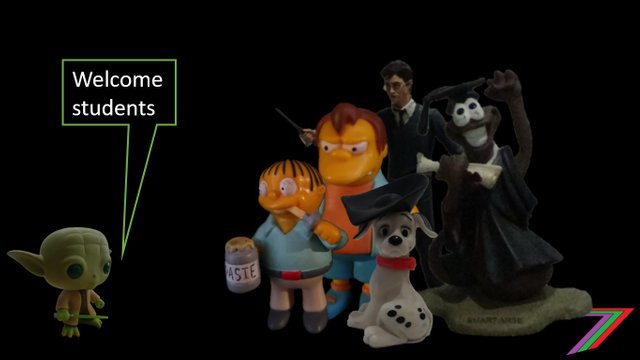
I have several definitions of education from online dictionaries such as Oxford, Collins, and dictionary.com, see below.
A process of teaching, training and learning, especially in schools, colleges or universities, to improve knowledge and develop skills (Oxford Dictionary).
Education involves teaching people various subjects, usually at a school or college, or being taught (Collins Dictionary).
The act or process of imparting or acquiring general knowledge, developing the powers of reasoning and judgment, and generally of preparing oneself or others intellectually for mature life (Dictionary.com).
I think I prefer the dictionary.com definition.
From the definitions provided, we can see that education concerns both imparting information as well as receiving it.

We should desire to have a good education. A good education enables us to:
- make better decisions in all aspects of life
- efficiently and effectively obtain information, which we can convert into knowledge
- become independent (e.g. financially, emotionally, and intellectually)
- be creative and innovative
- understand ourselves (e.g. our strengths and weaknesses)
- respect, understand and tolerate alternative ideologies
- contribute to those around us
We obtain a good education by being provided the tools to learn. These tools include communication, critical thinking, cooperation, attentiveness, open-mindedness, perseverance, discipline and many others. A good education is fuelled by desire and motivation to learn and self-improve. Understanding the reasons why something needs to be learnt is paramount to facilitating the learning the process.
A good education is desirable, whereas a limited or a bad education is not desirable. A bad education is an emphasis away from the tools that enable us to have a good education. Some of these are described in the previous paragraph. For example:
- Dogmatic regurgitation is emphasized over critical thinking.
- One-way communication is emphasized over open communication.
- Obedience is emphasized over cooperation.
- Closed-mindedness is emphasized over open-mindedness.
- Discipline is enforced rather than encouraged.
- Fear is emphasized over perseverance.
- Rote learning is emphasized over meaningful acquisition of knowledge.
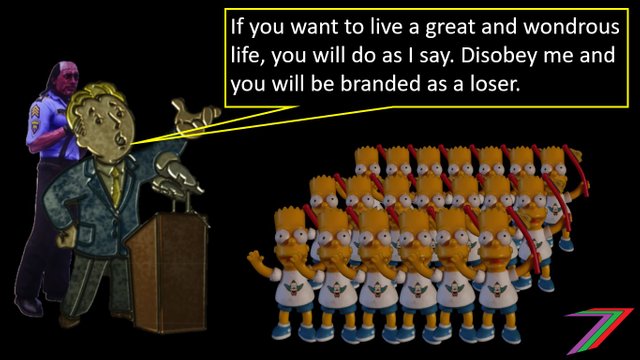
A person who has or is experiencing an entirely bad education will:
- become dependent on others to make decisions on their behalf
- become limited to information that has been provided directly to them
- lack independence in several or all areas (e.g. financially, emotionally, or intellectually)
- lack creativity and innovation as they will be deemed unnecessary
- only understand a dogmatic perception of themselves
- become intolerant of any ideologies that conflict with their own dogma
- provide limited or no positive contribution to those outside of their own group
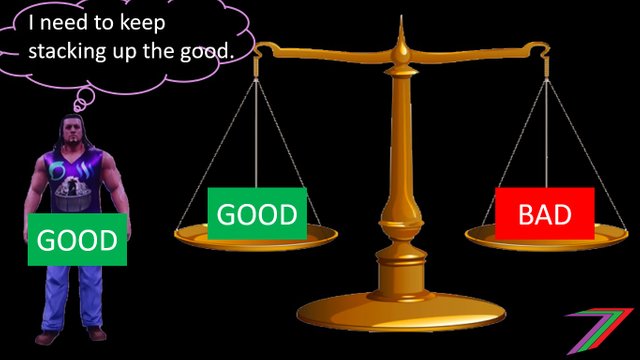
In most cases an education will consist of both and good and bad elements. If the good elements outweigh the bad, a person should be able to distinguish between what is helping them and what is not. However, an individual’s personality as well as the type of support they receive from others will be a factor in determining the type of education that will have a stronger hold on them.
An example of extremely bad education is the type provided by cults or radical religious groups. People that are indoctrinated into these groups are brainwashed and often become completely at the mercy of the cult and group leaders.
How does the prevent, solve, or manage approach apply to education?
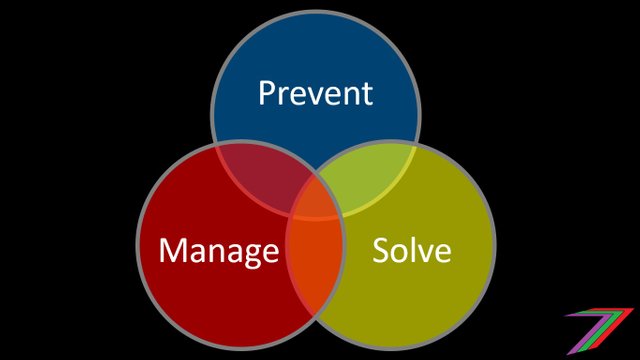
We can apply the Prevent, Solve or Manage approach to education. The priority of approaches, as explained in my previous posts, is ‘prevent’, followed by ‘solve’ and finally followed by ‘manage’. In the context of education, this order of approaches might need to change a little.
The core objective should be the provision of good education to as many people as possible. Contrary to a good education is a lack of education or a bad education. The ‘Prevent’ approach should focus on putting young people on the path to obtaining a good education. The ‘Solve’ approach should focus on helping people who have had a bad start (i.e. limited or bad education) move towards obtaining a good education. The ‘Manage’ approach should focus on dealing with people who become entrenched in a bad path and are unable to revert to a better path.
Prevent
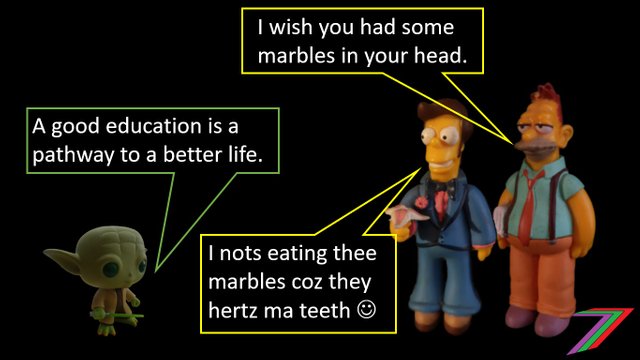
The prevent approach should focus on preventing young people becoming indoctrinated in establishments, institutes, religions, cults, etc. that focus on the negative aspects discussed in this post. Children generally do not have a choice in regards to the education that they first become exposed to. Their parents or guardians make that decision on their behalf. Initially education comes directly from parents, guardians and other close family members. In most cases, the Government takes over the education process through schools. In other cases, children are enrolled in private schools or are home-schooled by parents and/or private tutors. Again, these choices fall on the parents of children.
The ‘Prevent’ approach can be divided into two parts. The first part involves teaching parents what a good education actually is and why it is important. Teaching parents about education can be both formal (i.e. courses that teach parents about the value of a good education) and informal (i.e. direct communication from community members that have a thorough understanding of what a good education entails). The first part of the ‘Prevent’ approach involves ‘solving’ a bad or lack of education in parents in order to ‘prevent’ their children from starting out on a path towards a bad education.
The second part involves providing education institutes that offer good education to children. We can argue that education can be provided as a private good. It is excludable, i.e. you need to pay for it in order to obtain it (e.g. teachers do not work for free and buildings and equipment have costs). It is scarce, i.e. your consumption reduces the ability of others to consume it (e.g. a class can hold only so many students).
Would the private sector provide good or bad education? The private sector will provide what people demand. In this case, it is the type of education that parents demand for their children. Hence, the private sector would most likely provide both good and bad education. This takes us back to the importance of parents understanding what a good education entails.
The public sector could also provide education. The public sector could hire experts to design education courses and curriculum that would offer young people a good education. Many countries have public schools. Many countries have still struggled to offer good education. This is likely because of the usual problems with Government provided services. They are generally low quality because of a lack of incentive to perform to a high standard. Education is also likely to be influenced by the ideology of ruling Governments; this will move at least some areas of public education into the ‘bad’ category. As with any form of public service, there is also the problem of funding.
I believe private schools are more likely to offer a better education than public schools as more people become aware of what a good education entails.
Another alternative is community funded education. The community could establish a fund to pay for education. The blockchain and cryptocurrency could play a role in this approach.
Solve
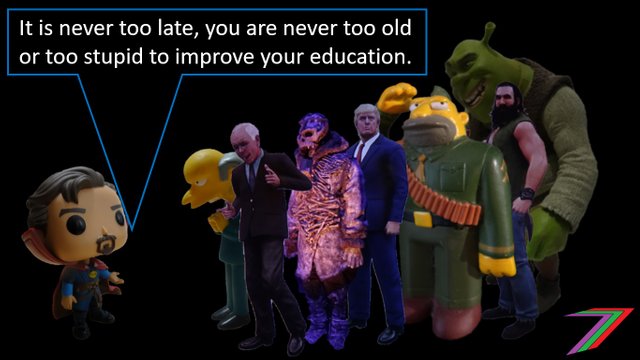
I have discussed how people can begin on a path to a good education. However, many people, through no fault of their own, will have the misfortunate of being on a path towards a bad education. How can we solve this problem? In some cases, this will be self-correcting as young people stumble across better alternatives paths, they could possess the natural instincts to change course or they could seek alternative experiences and knowledge. In many cases, a bad start perpetuates itself as life progresses. People will not seek help or guidance because they will not know they need it. Those around them might not push them in a better direction because they were the ones that lead them down a bad path in the first place.
There is also the problem of those that missed a guided education in their early years. These people would have sought out their own education. Some people that are self-educated are closer to a good path than a bad one as they have not been indoctrinated into the bad. A more formal education should be made available to this group of people if it is sought after. This could include a combination of subsidies, scholarships, and various other programs. Many self-educated people have achieved success without a formal education and may decide one is not needed.
Manage

If someone did not start on a good path or even somehow diverted to a bad path, they need to make the decision to re-educate themselves; a good education cannot be forced on someone. Some people will not choose to re-educate themselves but instead continue on their bad path. Many of these people will try to force others to follow their poorly chosen path. In many case, this involves negatively influencing their own family. However, in extreme cases, bad education is more widely proliferated. This could be done by cult, religious and political leaders and members. The negative impact fuels hatred and violence towards those that do not conform to the ideologies dictated by the group.
In my post Crime – Prevent, Fix, or Manage, I explained why it is a huge challenge to manage criminals who cannot be reformed. The same problem exists for those that have been radically brainwashed. The problem is magnified if they have been brainwashed in a way that makes them dangerous to those around them. If a dangerous person cannot be reformed, they will need to be removed from society. However, prisons are not the answer.
Where does education fit into the Prevent, Solve, or Manage Model?
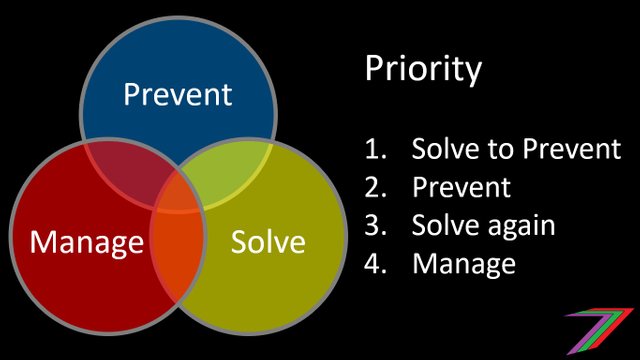
The education problem often follows a vicious cycle. This is because we do not initially choose the type of education we receive. Instead, our parents/guardians determine it. If our parents/guardians have the wrong ideas about what a good education is, we are likely to receive a lack of or bad education. Good schools may help to correct that problem but parents may choose to send their children to schools, which perpetuate the bad education they believe to be good.
In order for young people to begin on the right path, parents may need to be re-educated to understand what a good education actually involves. Therefore, the ‘Solve’ approach for parents/guardians is required to enable a good education for their children/wards. Managing a bad education in many cases is not possible. For most people, they are the biggest victims of their own lack of or bad education. However, some people are a danger to those around them. Removing them from society might be the only course of action.
Quick Summary of Key Points
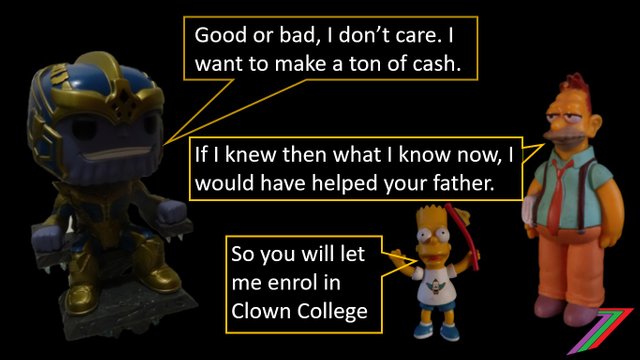
- Education is a life-long journey; it is much more than a formal education.
- A good education has many important advantages.
- A good education provides us with the tools to improve our lives as well as the lives of those around us.
- Contrary to a good education is a lack of education or a bad education.
- A bad education inhibits freedom and individual growth.
- Education can be provided as a private good but the type of education provided depends on the type of education demanded, that could be either good or bad education.
- Education provided by the Government is unlikely to be good because of lack of incentive to deliver a quality service and the dogmatic ideologies held by Statists.
- It is important for parents to understand the importance of a good education for their children.
- The type of education we receive in our early years is out of our hands.
- Opportunities should be made readily available to people who missed a good education in their earlier years.
- Not everybody is able to break away from the negative influences in their life; some of these people could pose a danger to others.
- The prevent, solve, or manage approach, I have described in previous posts might be described as a solve to prevent, prevent, solve or manage approach.
More posts

If you want to read any of my other posts, you can click on the links below. These links will lead you to posts containing my collection of works. These posts will be updated frequently.
Guide to the Steem Ecosystem (Udemy Course)

I have launched my Udemy course ‘Guide to the Steem Ecosystem’. This course takes you on journey through the Steem Ecosystem. The course consists of 6 sections. These sections are as follows:
- Getting Started
- Navigating Steem Frontends
- Becoming a Steem User
- Behind the Scenes
- The Wonders of the Steem Ecosystem
- Additional Content (SteemFest 4, SMTs, Communities, etc.)
The course contains 56 video lectures (about 13.5 hours of viewing), 56 multiple-choice questions (10 to 12 at the end of each section), and 59 downloadable resources (presentation slides and additional material such as white and blue papers). The course is free-of-charge. Click the link above to access the course.
I also have an economics course, titled Economics is for Everyone, which contains about 4 hours of video content.




Steem - The Future of DApps
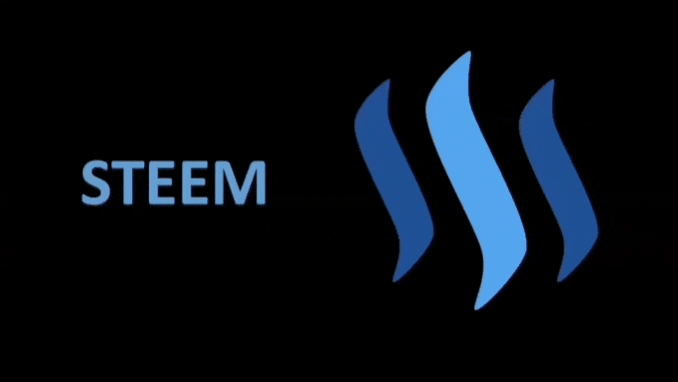




I'll be back shortly to leave a comment @tipu curate
Downvoting a post can decrease pending rewards and make it less visible. Common reasons:
Submit
Upvoted 👌 (Mana: 15/20 - need recharge?)
Downvoting a post can decrease pending rewards and make it less visible. Common reasons:
Submit
I like the Dictionary.com definition better, as well :>)
Downvoting a post can decrease pending rewards and make it less visible. Common reasons:
Submit
Yeah, it is not so academically focused.
Downvoting a post can decrease pending rewards and make it less visible. Common reasons:
Submit
Simplicity, is sometimes more effective IMHO :>)
Downvoting a post can decrease pending rewards and make it less visible. Common reasons:
Submit
Hi @spectrumecons!
Your post was upvoted by @steem-ua, new Steem dApp, using UserAuthority for algorithmic post curation!
Your UA account score is currently 5.085 which ranks you at #1089 across all Steem accounts.
Your rank has improved 12 places in the last three days (old rank 1101).
In our last Algorithmic Curation Round, consisting of 95 contributions, your post is ranked at #18.
Evaluation of your UA score:
Feel free to join our @steem-ua Discord server
Downvoting a post can decrease pending rewards and make it less visible. Common reasons:
Submit